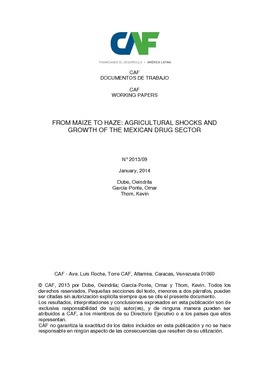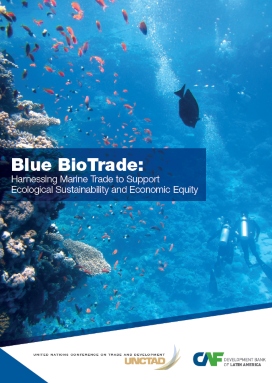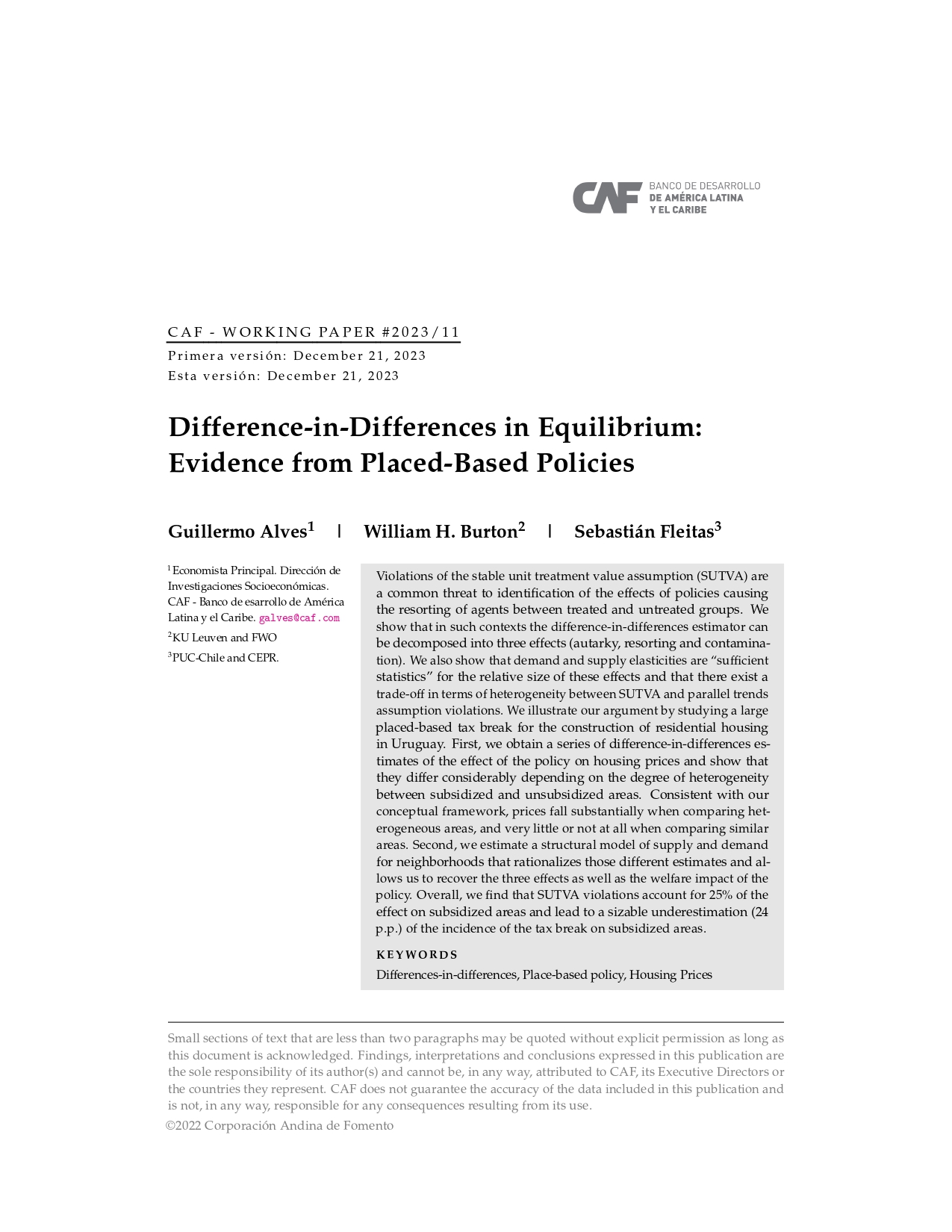From maize to haze: agricultural shocks and growth of the mexican drug sector
Abstract
We examine how commodity price shocks experienced by rural producers affect the drug trade in Mexico. Our analysis exploits exogenous movements in the Mexican maize price stemming from weather conditions in U.S. maize-growing regions, as well as export flows of other major maize producers. Using data on over 2200 municipios spanning 1990- 2010, we show that lower prices differentially increased the cultivation of both marijuana and opium poppies in municipios more climatically suited to growing maize. This increase was accompanied by differentially lower rural wages, suggesting that households planted more drug crops in response to the decreased income generating potential of maize farming. We also find impacts on downstream drug-trade outcomes, including the operations of drug cartels and killings perpetrated by these criminal groups. Our findings demonstrate that maize price changes contributed to the burgeoning drug trade in Mexico, and point to the violent consequences of an expanding drug sector.
Subject
Country / Region
Date
2013Cite this publication
Belongs to collection
Author
Dube, OeindrilaGarcía-Ponte, Omar
Thom, Kevin
Items Relacionados
Blue BioTrade: Harnessing Marine Trade to Support Ecological Sustainability and Economic Equity
The following report describes how the application of the Blue BioTrade concept can promote sustainable and equitable economic sectors and value chains ...
The Asymmetric Impact of Trade Shocks on Rural and Urban Areas: Evidence from Chile
This paper examines the causal effects of trade shocks on local labor markets (LLMs), with a focus on the rural–urban divide. In particular, it analyzes ...
Difference-in-Differences in Equilibrium: Evidence from Placed-Based Policies
Violations of the stable unit treatment value assumption (SUTVA) are a common threat to identification of the effects of policies causing the resorting ...






